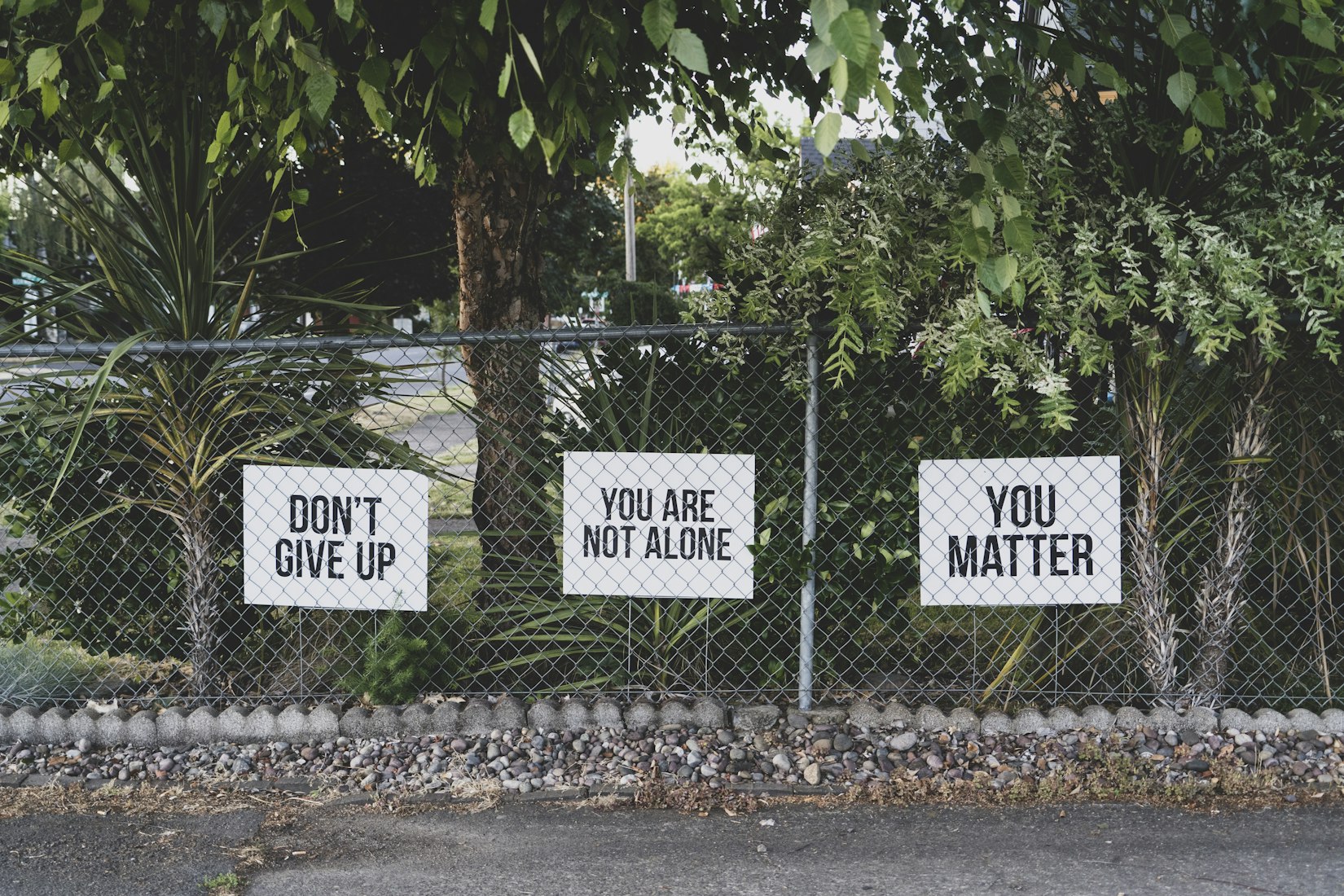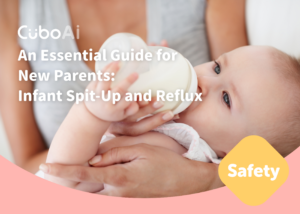Have you ever heard of the “Baby Blues”? Despite the name sounding like it’s directly out of a 1950s ad for ironing boards, it’s the title under which many know Postpartum Depression. As if birthing wasn’t hard enough, what comes after is no walk in the park and any mom will tell you exactly that. Whatever you decide to call it, today we’re going to talk about how to spot the symptoms of PPD, treating your “baby blues,” and some great free resources for dealing with postpartum depression.
Remember, Cubo Ai is here to support you during your pregnancy and parenthood journey. This post is not medical advice. For any medical support and information, please contact your healthcare provider.
Guide to this post
- Is it normal to cry a lot after having a baby? Postpartum Explained
- Symptoms of Postpartum Depression
- How can you Prevent PPD?
- How long does anxiety last after having a baby?
- Dealing with postpartum depression
- Postpartum Depression Treatment
- Free Resources

Is it normal to cry a lot after having a baby? Postpartum Depression Explained
They say that after mothers give birth, the experience is soon erased from their memory. The pain, at least. They say that this is done biologically so moms will be more enthusiastic about going through it all again for a second child. Others say that it’s really just the “halo effect” which covers an experience in its resulting feeling. So the final feeling is the one that sticks. Of course, what a happier feeling than bringing life to the world?
This can also happen with Postpartum Depression or “Baby Blues”. Since it’s so temporary, parents often forget it was a big deal at all. The resulting feeling is “whew, we’re so glad that’s over”. All the measures they took, the anguish they went through, it’s all in the past. While it’s great to move on from a mental health struggle, this makes PPD a transient topic about which parents don’t talk for very long. Thus, PPD becomes a lonely experience.
Turns out, crying a lot after having a baby is common. But you don’t have to feel this way (more on this later). It’s also important to note that many women hesitate to say that being depressed after having a baby is “normal”. Instead choosing to call it “frequent” or “common”. This is because to assume that your symptoms are normal makes it seem as if you can just wait it out or you have to go through it. You certainly don’t have to go through it and in fact the earlier you see these symptoms the more likely you are to find a treatment to kick them.
Why these symptoms emerge
After you have a child, the main source of your progesterone, your placenta, is no longer in your body. So the progesterone levels in your body drop suddenly and dramatically. What does this mean? This is part of the reason why your life postpartum could include hair loss, sleep loss, menstrual problems, and, of course, baby blues. All of these things happen often. They’ll affect some moms a lot more than others and that’s okay. Knowing the postpartum depression symptoms can better prepare you to know when to look for extra support after having a baby.
Symptoms of Postpartum Depression
The way PPD shows up for different women varies. Generally, these are the postpartum depression symptoms to look out for:
- Anger, resentment, and even rage: women report often feeling irritated by their partner, baby, and other people in their life.
- Bad Memory: though many call it “pregnancy brain,” a lack of focus can often come thanks to depression and anxiety. Multitasking is out of the question, and simple words seem out of reach. Add to this the lack of sleep and you feel like your brain has dropped off the map. Feeling like you’ve actually gotten “dumb” is common.
- Frightening thoughts: unwanted thoughts that scare you are common for those who suffer from anxiety. Post-pregnancy, this is a sign of postpartum depression. Something to remember is that intrusive thoughts are no reflection of your real wishes and don’t say anything about you as a person. Finding tools to tackle intrusive thoughts can help you deal with them.
- Numbness: While many think of postpartum women as endless streams of tears and emotions, numbness is a vastly common symptom after birth. Moms talk about going through the motions, feeling entirely disconnected from their baby, and everything else. Basically, feeling like this wasn’t what you expected during pregnancy.
- Insomnia: Lack of sleep is normal, but the inability to sleep when your baby is sleeping or under the care of a loved one can not just be a symptom of PPD but also create the situation for you to be more tired, cranky, and upset.
How can you prevent PPD?
Understanding PPD before you even give birth is important so that you learn the symptoms and the risk factors and you can know what to expect. Another way is to prepare for the symptoms you might experience and make sure you have the support necessary from your partner, family, and friends.
Risk Factors
Of course, if you’ve suffered from depression, anxiety, or other mood disorders before, you’re at a higher risk of suffering from these symptoms of PPD and others. Your social network and stress during your pregnancy can also affect your post-pregnancy mental health. So, if you’re still pregnant, try to create the most optimal pregnancy experience to the best of your ability. Don’t forget to ask for help if/when you need it!
Other factors:
- Substance use during your pregnancy. (Tobacco, alcohol, etc.)
- Formula feeding or negative breastfeeding experiences.
Groups with higher rates of PPD:
- American Indian/Alaska Natives and Asian/Pacific Islanders
- Mothers younger than 24
- Mothers who have not gotten a higher education
- Single mothers
- Mothers who smoke
- Mothers to low-birth-weight infants or infants requiring NICU admission
How long does anxiety last after having a baby?
This all depends on how soon you catch your symptoms. This doesn’t mean you have to call your doctor immediately after coming home with your baby to tell them you think you have PPD. There’s a window of time when PPD is more likely to happen, but the earlier you diagnose it, the quicker you’ll recover.
You can go to your regular doctor to get referred or find a postpartum depression treatment specialist on your own.
Basically, it all comes down to the severity, the effectiveness of the treatment that you’ve chosen (if it doesn’t work, change it!), and more factors. If you’re not seeing results, even small progressive improvements, reach out to your doctor or specialist to try something new.

Dealing with Postpartum Depression
Most OB GYNs have been instructed to follow up with new moms in the first year to screen them for depression. If they get a positive screen, they’re told to pass these patients on to behavioral health resources and specialists.
If you feel like you or someone you know is dealing with the symptoms listed above, you can suggest that they make an appointment to get screened. This could, like we saw before, positively affect the amount of time these symptoms go on for. In the US, more than 1/2 of women suffering from PPD went undiagnosed.
It’s not uncommon to feel lonely and somehow flawed when you suffer from PPD. Rest assured you are not a bad mother and your family will be happy that you got the help you needed. Start with a doctor’s visit, a support group, even a friend. Telling someone, anyone (who is empathetic), how you feel can make a difference and get you comfortable towards getting treatment.

Postpartum Depression Treatment
Mental health is never one-size-fits-all. Some people do great with medication. Others need talk therapy, other behavioral therapy. Maybe your solution includes a mix of these! Just like how when you have a virus you’ll take antiviral medication or antibiotics, when you suffer from PPD, there is medication for you! Don’t let stigma hold you back from getting meds if you feel that’s what you need.
Free Resources for Postpartum Depression
On Instagram
It’s not all on Facebook (Though you can find them there too)! Instagram offers a lot of support groups and content for you to consume and feel better. These mom-friendly, diversity-friendly groups can help in your journey to mental health after having a child.
“Erica Djossa is a registered psychotherapist, sought-after maternal mental health specialist, and is the founder of Happy as a Mother. She has been practicing for over 10 years and is a regular media contributor. Erica helps women adjust to and manage the load of motherhood with her popular Happy as a Mother podcast, Instagram platform, and online therapy services. She is passionate about supporting moms and helping them embrace the journey. In addition to individuals, Erica also works in an educational and supportive role with health professionals to enhance their screening and provide them with practical maternal mental health resources. Erica is a Toronto based mother to three rambunctious young boys that can often be found sharing insights in her Instagram stories.“- Happy as a Mother
@postpartumsupportinternational
Postpartumsupport is an account that is highly diverse and has resources for women of all backgrounds, several languages and has actual support groups you can join. Add this to your feed to get inspired, find a community, or whatever else you need!
The Emily Effect is an Instagram account started after a mom went into the deepest darkness of PPD and came out on the other side to help women not have to go through that. It’s Utah-based but its topics are mostly applicable to anyone.
Hashtags
Websites
The Blue Dot Project
https://www.thebluedotproject.org/
TheBlueDot was created by Peggy O’Neil Nosti, a mom who suffered from postpartum anxiety with her third child who wanted to find a way to let other moms know they were not alone. Peggy created a subtle image of a blue dot and a silver lining to illustrate hope.
They offer resources and blogs for moms going through all kinds of heightened anxiety, not just PPD, but say COVID-related. I mean, isn’t this all of us?
If you have any other resources that you love and recommend, don’t forget to drop them in the comments!
Sources for this post
Want to Know More About Keeping Baby Close?
Cubo Ai is the first baby monitor to apply A.I. to baby’s Sleep, Safety, and Memories. With customizable danger alerts, a built-in night light, HD Night Vision with no visible red light and even lullabies it’s the best valued monitor in the market!





